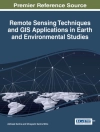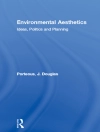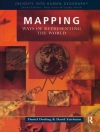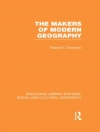This volume introduces the notion of ‘relational planning’ through a collection of theoretical and empirical contributions that explore the making of heterogeneous associations in the planning practice. The analytical concept builds on recent approaches to complexity and materiality in planning theory by drawing on Science and Technology Studies (STS) of urban issues. It frames planning as a socio-material practice taking place within the multifaceted relations between artefacts, agency and practices. By way of this triad, spatial planning is not studied as a given, linear or technical process but rather problematized as a hybrid, distributed and situational practice. The inquiries in this collection thus describe how planning practices are negotiated and enacted in and beyond formal arenas and procedures of planning, and so make visible the many sites, actors and means of spatial planning.
Addressing planning topics such as ecology, preservation, participation, rebuilding and zoning, this volume takes into account the uncertain world planning is embedded in. The implications of such a perspective are considered in light of how planning is performed and how it contributes to the emergence of specific socio-material forms and interactions. This is an invaluable read for all scholars of STS, Ecology, Architecture and Urban Planning.
Jadual kandungan
Introduction: Rethinking Planning Through the Lens of STS.- Part I – Identifying Planning Artefacts.- 1. Analysing Urban Governance at a Distance.- 2. Artefacts, the Gaze and Sensory Experience.- 3. Politics of Zoning.- Part II – Distributing Planning Agency.- 4. Can the Craft of Planning be Ecologized?.- 5. Constructing the Urban Citizen.- 6. Tracing the Democratic Deficit.- 7. Masterplans as Cosmograms.- Part III – Assembling Planning Practices.- 8. Re-assembling a City.- 9. Planning Ecologies.- 10. Saving Schools.- Afterword: Planning and the Non-Modern City.
Mengenai Pengarang
Monika Kurath is a senior researcher and group leader at the Center for Research on Architecture, Society and the Built Environment (CASE) at ETH Zurich, Switzerland.
Marko Marskamp is a Ph D researcher and research assistant at the University of Lausanne and the ETH Zurich, Switzerland.
Julio Paulos is a Ph D Candidate at the ETH CASE Centre on Society, Architecture and the Built Environment in Zurich, Switzerland. He is an assistant researcher on the project ‘Rethinking Zones: A comparative study of planning cultures’.
Jean Ruegg is a professor of Human Geography at the University of Lausanne, Faculty of Geosciences and the Environment, Institute of Geography and Sustainability, Switzerland.












